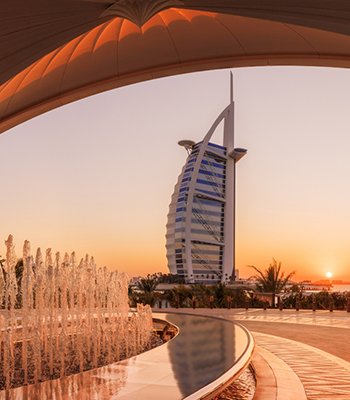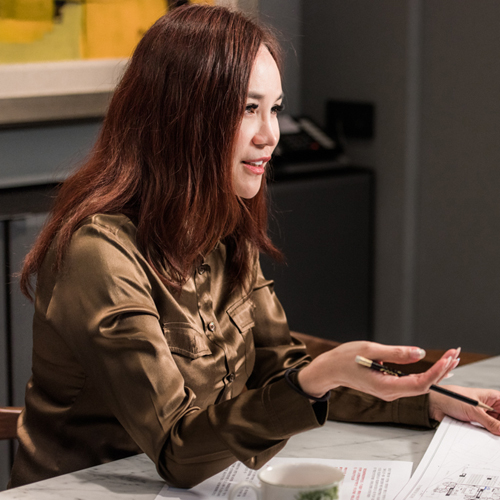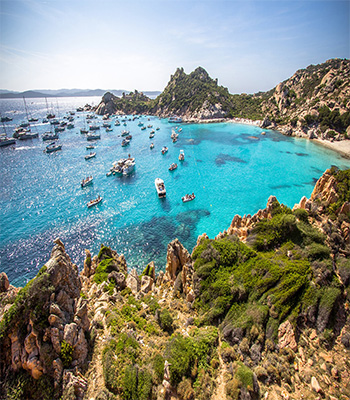
現代旅遊模式與社會永續
近年來,旅遊業環境發生了一些小而重要的變化,但仍然存在於旅遊者意識形態的驅動下,通過遊客流量的擴散,尋找主要針對當地社會與遊客之間關係的新形式。
不僅沿著沿海地區,而且還朝著更多的內陸地區發展。有必要超越旅遊者意識形態所追踪的方法,以追踪新的形式,從而再次找到“關係旅遊”的原理,新的和出人意料的形式,遊客和當地社會可以通過這種形式接觸。以編程方式而不是完全按照組織方式進行,從而為消費者和業者之間的“相互脆弱性”創造了最佳條件。舉例來說,撒丁島的旅遊領土,由於其複雜性和當代的必要性來確定不遵循旅遊意識形態原理的新旅遊形式,因為最佳地點使自己有理由為新的旅遊者確定合適的領域和研究案例關係形式可以支持社交對話,並通過這種形式可以支持人們對該場所的新感覺。提出的案例研究是遊客與當地社會之間服務與遊客形式之間可持續整合的例子。關鍵字:關係型旅遊,社會可持續性,其他形式的旅遊,當今的遊客空間是由眾多吸引人的地方,服務,本地或全球行動,真實性的符號和要素以及旅遊目的地而產生和消失的。因此,隨著這些地方的表面使用,遊客行為模式變得越來越複雜。提出旅遊者表格的目的是為了給媒體和遊客傳達作為現成產品進行的體驗,並給遊客預想旅行前的參觀地點的想法。這種複雜性顯然造成了環境,經濟和社會可持續性的問題。人們通常宣稱可持續性對於接觸某些對環境問題更為謹慎的遊客群體很有用,但並非總是如此,尤其是需要了解可持續性一詞的含義,是否保護地方,尋求恢復力。領土或與當地社會的比較。可持續性的最後偏差尤其是本文的中心主題。
There are however some small but significant changes in tourism context in recent years, also remaining in the set driven by the tourist ideology, with the search of new forms directed mostly to the relationship between local society and tourist, through a diffusion of the tourist flows not only along the coastal areas but also toward to the more interior territories. There is a need to go beyond the ways traced by the tourist ideology with the purpose to track new forms down where find again the principles of the “relational tourism”, new and unexpected forms which tourists and local society can enter in contact in a not programmed and not organized, in which the optimal conditions to the “mutual vulnerability” among guest and hosts are created. Sardinia’s tourist territory, in reason for its complexity and the contemporary necessity to identify new touristic forms that don’t pursue the principles of the tourist ideology, as optimal place offers itself to reason on the possibility to identify appropriate fields and cases of study for new relational forms that can support a social dialogue and that, through this, can support the perception of a new sense of the place. The presented case studies are examples of sustainable integration between services and tourist forms, among tourists and local society. Keywords: Relational tourism, social sustainability, alternative forms of tourism, tourist spaces is today as a vast set of attracting places, services, local or global actions, symbols and elements of authenticity, and touristic destinations appear and disappear with increasing speed. So, tourist phenomenon becomes more and more complex, with superficial uses of the places. Tourist forms are proposed with the goal to give an experience conducted as a ready-made product communicated by the media and tourists prefigure an idea of the place to visit before the trip. This complexity obviously sets problems of environmental, economic and social sustainability. Sustainability is often declared as useful for reaching certain tourist segments more careful to environmental issues, but it is not always real, especially there is a need to understand what is meant by the term sustainability, whether the protection of places, the search for resilience of the territory or the comparison with local societies. This last declination of the sustainability is, particularly, the central theme of this paper.
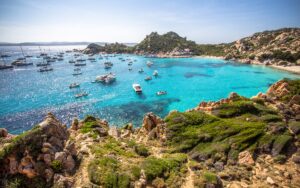
確實,如果旅遊通常是現成的體驗,那麼它傾向於讓個人接受,保護和引導的設備,與其他人相遇並不那麼簡單,或者通常是外部指導。當遊客在沒有預先定義的思維導圖的情況下與當地社會會面時,他們之間就建立了關係。建立平等關係不足以確保旅遊業形式的社會可持續性:還需要做些其他事情,因為不會容忍,經常欺騙或剝削旅遊者。重要的是,旅遊業應成為在旅遊區建設城市化的機會,不僅向遊客提供服務,還向接待人口提供服務。當代的旅遊空間今天的旅遊場所和空間是狹窄的後現代空間,具有集中的旅遊圖像和圖標,因此與上下文(甚至是物理環境)分開。可能會看到一種普遍的文化變異,這樣一來,遊客空間對於領土規劃以及地方和社會發展總是越來越重要。旅遊業的影響通常決定了一些反映和預測社會自身變化的空間過程。Indeed, if the tourism is often a ready-made experience, then it favors the surrender of the individual to an apparatus that receives, protects and guide, it is not so simple to meet the others: the tourist doesn’t have real occasions to meet the host society or, often, this meeting is externally directed. Relationships born when a tourist, meeting a local society without previously defined mental maps, realize an equal relationship with them. The construction of an equal relationship is not sufficient to ensure the social sustainability of tourism forms: something is needed more because the tourist will not be barely tolerated, often cheated or exploited. It is important that tourism becomes an opportunity to build urbanity in tourist areas, providing services not only to the tourist but also to the host population. Contemporary tourist space Today tourist places and spaces are decisely Post-Modern ones, with concentration of tourism images and icons and for this reason separated from the context, even physically. It is possible to see a general cultural mutation and, in this way, tourist spaces always assume an increasing importance both for the planning of the territory and for local and social development. Tourism influences and, often, determines some spatial processes that reflect and anticipate changes in society itself.
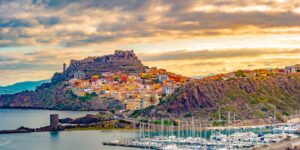
旅遊形式的可持續性在很大程度上與經濟政策有關,但也表現為環境相容性停留時間過長,而還原性視野卻不能像完全關注自然過程的旅遊者那樣絕對不能令人滿意,或者經常與替代方案混淆旅遊業比傳統旅遊業要多。撒丁島代表了一項將旅遊業減少為一項經濟政策的案例研究:旅遊業政策中的主流觀點總是專門針對接受性和建立新的結構,重點是場所的“典型性”以及廣告,營銷,認可了重複的模式,例如床和早餐,酒店兜售場,旅遊公寓,分散式酒店等。在沿海和內部的城鎮中,這些結構的數量越來越多。因此,撒丁島語境幾乎完全集中於旅遊的對像中心,酒店,度假村等,而絲毫沒有考慮對領土的影響。這標誌著該領土像一個物體一樣具有持久的遠見,很少有遠見的旅遊政治,而只針對創造非同尋常的空間而沒有任何聯繫,並且在時間上是有限的,其中遊客僅以膚淺的方式認識到當地的社會,形成和消亡偶然的關係。然而,時間因素值得進一步的推理。人們發現這些地方在時間上是無法移動的,就好像它們不受該地區遊客流量產生的影響一樣。這種政治可以被認為是一種以像徵形式提出領土,復興原型並將其提議給遊客的意識形態的意識形態,通常很少進行精雕細琢就突出了民族中心主義,重複了相同的形狀和模型並且完全脫離了完整的規劃系統。這種演變過程可以定義為旅遊意識形態。嘗試通過建模樹來表示撒丁島的遊客路徑是有用的,顯示不斷生成新形式,包括通過重新解釋現有形式。但是,這種持續不斷的發展對領土產生了什麼影響。
The sustainability of tourism forms is largely linked to economic policies4 but is also expressed in terms of environmental compatibility dwelling too long on reductive visions not considered absolutely satisfactory like that of the tourism exclusively concerned with natural processes or it is just as often confused with the alternative tourism than the traditional one. Sardinia represents a case study of the reduction of tourism to an economic policy: prevailing views in tourism policies are always directed exclusively to receptivity and to the establishment of new structures, focusing on “typicality” of the places and on forms of advertising, marketing, endorsed repeated models such as bed and breakfasts, hotels tout court, tourist residences, diffused hotels and so on. In the towns, both coastal and internal, the number of these structures is increasing more and more . Sardinian context therefore focus almost exclusively to the objects centre of tourism, what hotels, resort, B&B etcetera, without considering in any way impacts on the territory. This marks a perseverant vision about the territory like an object, with tourist politics few farsighted and directed only to the creation of extraordinary spaces, without any relation and temporally limited, where the tourist recognizes only in a superficial way local host society, forming and undoing aleatory relationships. The temporal factor deserves nevertheless a further reasoning. The places are seen immovable in time, as if they were immune from the effects that the tourist flows produce on the territory. This politics could be considered as an ideology that proposes the territory in symbolic form, reviving the archetypes and proposing them to the tourist flows, often with few elaborations giving prominence to the ethnocentrism, repeating the same shapes and models and completely detached from a complete planning system. This process of evolution can be defined as a tourism ideology. It is useful to try to represent the tourist path in Sardinia by a modeling tree that shows the continuous generation of new forms, including through the reinterpretation of existing ones. But what effect has had on the territory this continuous and faceted development.
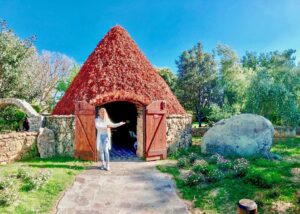
但是,經驗並沒有在現在發生,而是從過去汲取了力量,正如每個人固有的先入之見所預料的那樣。不可能有純粹的存在,而是先前經過判斷和評估的對象;取而代之的是,旅遊業形成了對主體,對人民而不是對個人,對“我”之間的“關係”的構建是認真的,而“其他”可以被定義為關係型。問題是如何(以及在何處)找到有利於與另一方建立平等關係的旅遊形式;這意味著要了解在一般情況下通過與他人互動準備一個人的條件。環境和認知心理學研究表明,當一個人容易受到傷害或處於某種特別使他人無法與他人接觸的特殊條件時,就會產生這些條件。當兩方彼此“脆弱”時就創造了條件,在這種脆弱性中,人們有可能為某物或某人感到“被感動“,有一種普遍的感覺,而不是旅遊業通常創造的無敵感,或對背景和當地社會漠不關心。遊客之間的脆弱性,以及由於特殊的必要性或特殊條件而產生聯繫時所產生的脆弱性。要實現脆弱性條件,則意味著要確定在零件之間產生聯繫的必要條件。有必要考慮一下,什麼樣的旅遊方式不會阻礙意外關係的產生。社會可持續旅遊業的替代形式:撒丁島關係旅遊的兩個例子撒丁島為遊客與當地社會之間的關係提供了一個有趣的研究領域,發現了可能促進社會對話的新的旅遊業形式,並由此鼓勵了人們對新旅遊業的認識。地方感。然後的目的是找到與“排他性”旅遊者意識形態的一種典型形成對比的“包容性”旅遊形式。在通常被認為是“社會旅遊”的情況下考慮了這些形式,即可以響應關係請求並且不僅僅針對處於不利狀況的人的特定社會旅遊類別的一系列旅遊活動。
But experience does not happen in a present time, draws strength from its past, as it is anticipated by preconceptions that are inherent in everyone. It is not possible to have a pure presence, but a previously judged and evaluated object; instead tourism forms careful to the subjects, to the people, rather than to the individuals and oriented to the building of “relationships” between the ‘I’, the ‘other’ can be defined relational. The problem is how (and where) can be found tourist forms favorable to an equal relationship with the otherness; this means to understand what are the conditions under which a person is generally prepared by interaction with others. Environmental and cognitive psychology studies show that these conditions are created when a person is vulnerable or is in particular conditions to feel mostly inclinable to the contact with the others. The conditions are created when the two parties are each other “vulnerable”, where for vulnerability it is intended the possibility to feel “touched” for something or someone, a possibility to feel common, as opposed to the invulnerability that the tourism generally creates, or indifference to the contexts and the local societies. The vulnerability between tourists and between tourists and local society born when it creates a bond due to a particular condition of necessity or need. To realize vulnerability conditions means then to identify what can be the requisite to generate a contact between the parts. It is necessary to think what can be the way for which a tourist experience doesn’t hinder the birth of unexpected relationships. Alternative forms of social sustainable tourism: two examples of relational tourism in Sardinia offers an interesting field of research with respect to relations between tourists and local society, finding new possible tourism forms that favor a social dialogue and through this encourage the perception of a new sense of place. Then the purpose is to find “inclusive” tourism forms that contrast the “exclusive” one typical of the tourist ideology. These forms are contemplated in what is generally considered “social tourism“ , i.e. the set of tourism activities that can respond to a request for relationships and is not directed only to specific social tourist categories of persons in situations of disadvantage.

在低密度環境中,旅遊形式再次具有真正的重要性,通常是邊際的,很少服務。少數不能保證人口最稠密的城市條件相同領土。然後,它開始形成一個惡性循環,導致人口減少,進而影響質量和提供的服務數量。僅以這種類型的領土中的旅遊業作為經濟形式來推理,就像撒丁島的一樣-在人口最稠密但非常貧困且欠發達地區-只需要始終新建酒店或度假勝地,同時將旅遊業視為有機會為遊客和當地社會提供服務,不僅意味著干預遊客而且產生積極影響並改善其生活質量。有服務在低密度區域(例如健康和個人護理)意味著允許住在那些地方的人確保更容易取用只能在相當遠的距離處處置的貨物。因此,這意味著建設城市,增加機會和生活質量,以實現領土平等。 這也意味著產生一種新的位置感:一方面,由於可能具有優質的服務,當地社會被迫向其他地方尋求自己的福利並擁有所有權他們的網站,另一方面,遊客發現存在真實性是基於旅行動機。它獲得同時由旅遊的兩個主體分配和重新分配地方空間。它還產生了一個新的地方,而空間旅遊也不再被視為具有地域性。它不是因此對於開拓旅遊市場至關重要,而是選擇以真正的利益相關者作為工作對象在旅遊過程中,在平等地比較我們的可能性上,在分享一種感覺的可能性上屬於一種不是有限的時間經歷,而是在日常生活中持久存在的事物。
Tourist form has again a real importance on low density contexts, generally marginal and with few services. The few presents don’t guarantee the same conditions of urbanity of the most densely populated territories. Then it starts a vicious cycle that leads to depopulation, which in turn affect the quality and quantity of services offered. To reason only on the tourism as form of economy in this type of territories, like Sardinian ones – the same reasoning is valid in areas most densely populated but very poor and underdeveloped – only requires always new hotels or resorts, while thinking about tourism as an opportunity to provide services for tourists and local society, means not only to intervene on the tourist but also generate positive effects on the host territory and improve their quality of life. Having a service in low density areas such as health and personal care means to allow to whom that live in those places to ensure easier access to goods which may be disposed only at considerable distances. It means, therefore, to build urbanity, to increase the opportunities and the quality of the life to reach a territorial equity. It means also to produce a new sense of the place: on the one hand, thanks to the possibility of having a quality service, the local society is forced to look elsewhere for their own welfare and takes ownership of their sites, on the other the tourist finds that existential authenticity, base in travel motivations. It obtains simultaneously an appropriating and re-appropriation of places by the two subjects of tourism, on a shared space. It also produces a new place, and space tourism ceases to be regarded as reterritorialized. It is not therefore, essential to pursue the tourist market, but rather choose to work on people as true stakeholders in tourism process, on the possibility that compares us in an equal way, on the possibility to share a sense of belonging to something that is not a limited time experience but a lasting trace in everyday life.
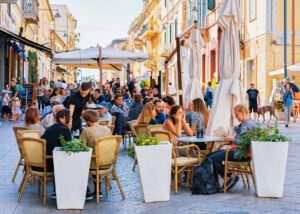
文/Giuseppe Onni
提供/Prof. Markus Pillmayer
圖/Website Resource

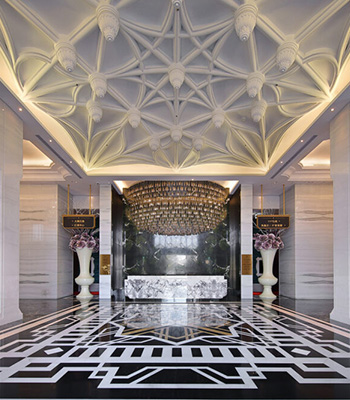


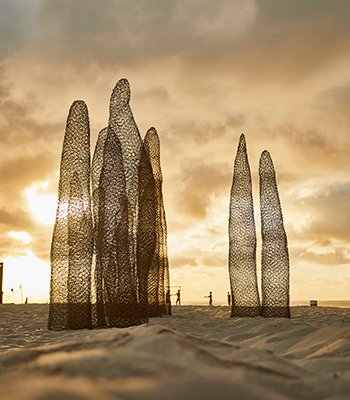
![設計獎項新訊|[小編精選]2026年3月份國際設計獎項資訊 DECO TV / 設計盒子](https://yusi-group.com/wp-content/uploads/2026/01/歐洲IADA2026_350.jpg)

